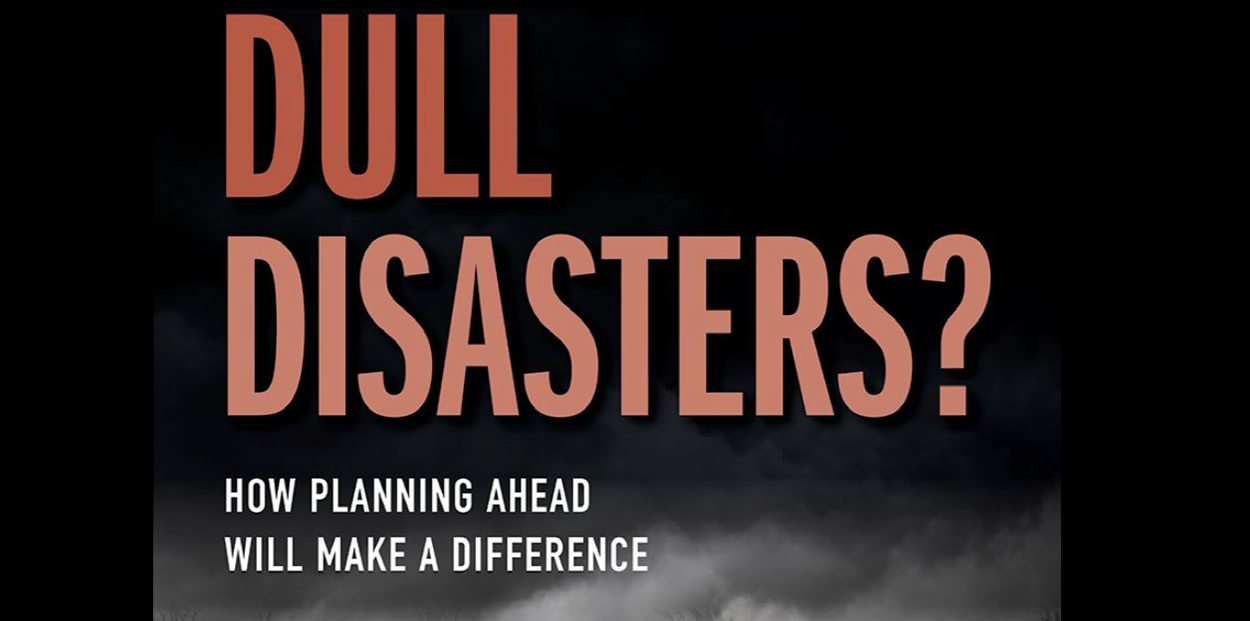Start Network's Emily Montier discusses new book Dull Disasters: how planning ahead will make a difference.
Response to disasters should involve careful risk management, rather than the current emotional, headline-grabbing state of affairs. This is what the authors of a new book ‘Dull Disasters’ are advocating for.
Daniel Clarke (World Bank) and Stefan Dercon (Chief Economist at DFID) argue that failures in aid coordination and inefficiencies can be traced back to poor pre-disaster planning. This is not a new argument. The beauty is in their analysis of the reasons why - because there are no assurances that any response plan will be financed. This focus on the need for new business models of humanitarian financing is consistent with our work through Start Network’s Start Labs.
The current humanitarian funding system is dependent on a ‘begging bowl’ model of voluntary contributions. As the Start Network has been saying for years, the release of funds is held at the mercy of human decision making, driven by media headlines or political bias. What the book argues is that without any assurance of what funding will come in and when, there is no substance to any kind of planning exercise as no one is able to say for sure what they will or will not be able to deliver. Without this, response plans never migrate beyond theoretical paper-based exercises, and we continue to see slow and uncoordinated responses.
The authors suggest that we tackle this by ‘thinking like insurers’. In simplified terms we should:
- Identify risks using science based modelling to build credible crisis response scenarios
- Plan for who will carry out what actions in the different scenarios, and cost out these activities
- Ensure standby financing to deliver response plans
The third step, ensuring standby financing, poses the greatest challenge to the largest donors in the humanitarian system, governments. As the book identifies, the current system offers political rewards for governments that spend their humanitarian budgets via large ad-hoc, post-disaster donations thereby disincentivising a change to a ‘duller’ standby financing model.
However, there are encouraging signs that government donors and the insurance industry are coalescing around this change as evidenced by the launch of the Insurance Development Forum - a Public/Private Partnership to extend the use of insurance to vulnerable populations. The Start Network is the organising partner for civil society at the forum.
The collective global discussion about the use of insurance for humanitarian response is exciting and promising. However, frontline humanitarian responders are currently in danger of being left-out of many of these discussions as evidenced by their notable absence from most of the Dull Disasters book.
We all have more work to do as this new community coalescing around insurance to ensure that frontline agencies are front and centre in the new global infrastructure that this discussion is creating.
Civil society plays a unique role in humanitarian crises by delivering an estimated 70% of the last mile of humanitarian assistance. A great proportion of humanitarian aid budgets flow directly or indirectly through civil society organisations in order to reach the most vulnerable communities. In many areas of the world where there is limited state service provision (due to conflict or fragile governments systems), these organisations address the full spectrum of humanitarian needs (water, sanitation, housing, education, health). A new, more efficient humanitarian system requires these organisations to be supported to plan effectively and also ‘think like insurers’.
The Start Network, as a collective operational platform of civil society frontline humanitarian responders, provides a space for experimentation, learning and joint implementation. On an operational level we have already made successful steps by establishing the Start Fund, a global standby contingency fund which can ensure fast and strategic small-scale allocations of funding in the early stages of small and forgotten emergencies. This allows for allocation of funding based on needs, de-coupled from media-headlines or political bias.
Building on the success of the Start Fund, through Start Labs we are also working to create a more diverse toolkit of funding instruments to ensure standby financing which frontline responders can rely on and use to plan effectively. This includes two new parametric insurance products to protect against drought risk, which will be piloted in 2017.
Looking forward, in the Start Network team we will continue to look for opportunities to provide a platform for our members to participate in global discussions and to lead from the humanitarian frontline in modelling new ways to ‘Dull Disasters’.
In the meantime, I would strongly recommend that anyone with an interest in improving the delivery of humanitarian aid read this exciting and thought-provoking book, keeping in mind how the principles apply to the full ecosystem of humanitarian organisations directly engaged in crisis response activities.
The Dull Disasters book is Open Access (Oxford University Press) and can be downloaded here.

